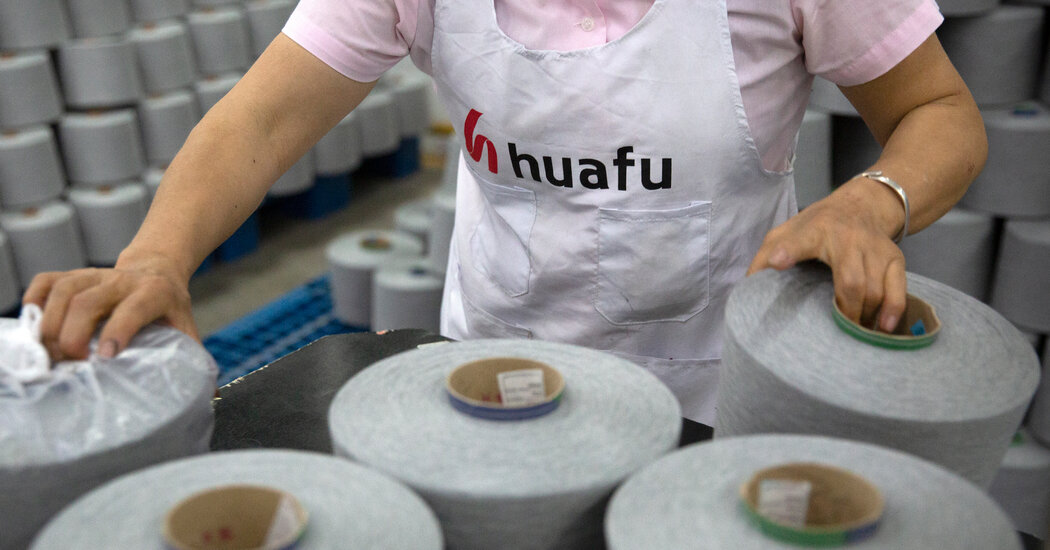The Biden administration stated Tuesday it could block imports from greater than three dozen Chinese language corporations, citing their alleged ties to pressured labor in China’s Xinjiang area.
The administration’s transfer is the biggest addition to an inventory of corporations banned from importing merchandise into the US over human rights considerations.
The motion was taken beneath law of 2021The Uyghur Pressured Labor Prevention Act, which prevents the US from importing merchandise made in complete or partially in Xinjiang, a far-western area of China the place the federal government has detained and monitored massive numbers of minorities, together with Uyghurs.
China denies the existence of pressured labor in Xinjiang, however the US authorities has stated the Chinese language authorities makes use of pressured labor, mass detention and different coercive practices to subjugate the area’s predominantly Muslim ethnic teams, significantly Uighurs.
The 37 corporations that had been added on Tuesday to a particular checklist created by the legislation embrace subsidiaries of a serious provider of vital minerals, Zijin Mining. New York Instances reported in 2022 that Zijin Mining has hyperlinks to labor switch packages in Xinjiang.
The additions additionally embrace one of many world’s largest textile producers Huafu Vogue and 25 of its subsidiaries. It is unclear which retailers Huafu presently provides, however H&M said earlier that it has an oblique reference to a manufacturing facility belonging to Huafu Vogue, and that it’ll lower these connections.
Actual property, mining, photo voltaic vitality and cotton corporations had been additionally added to the checklist. In complete, they convey the checklist to 144 topics.
Biden administration eyes 2021 Uyghur pressured labor legislation as an vital a part of its legacy in countering unfair commerce practices and discouraging sure problematic commerce with China. Because the legislation went into impact, different governments, together with in Europe and Canada, have taken steps to cease imports of products made with pressured labor, together with merchandise from Xinjiang.
Alejandro N. Mayorkas, the homeland safety secretary, stated the additions show the administration’s “relentless combat in opposition to the cruelty of pressured labor, our unwavering dedication to primary human rights, and our tireless protection of a free, truthful and aggressive market.”
It is unclear what strategy the Trump administration will take to imposing the legislation. However the legislation handed with bipartisan help and Sen. Marco Rubio, the Florida Republican whom President-elect Donald J. Trump selected as his secretary of state, was its principal writer. Mr. Rubio is a robust proponent of disrupting provide chains that contain pressured labor in China.
A Homeland Safety official stated the Biden administration has established a strong set of corporations it’s investigating and investigating that the Trump administration might pursue.
Xinjiang produces vital quantities of the world cotton, tomatoes and polysiliconwhich is utilized in photo voltaic panels and semiconductors. In recent times, flooring corporations carselectronics and seafood all have discovered themselves sourcing merchandise, components or uncooked supplies from Xinjiang.
Firms have more and more drawn censure in the US for ties to Xinjiang, however have additionally confronted backlash in China after they selected to sever these ties.
Late final 12 months, the Chinese language authorities said it was investigating PVH, the company father or mother firm of the Calvin Klein and Tommy Hilfiger manufacturers, for allegedly taking “discriminatory measures” in opposition to merchandise from Xinjiang. H&M and Nike have additionally confronted criticism from customers in China for reducing ties.

